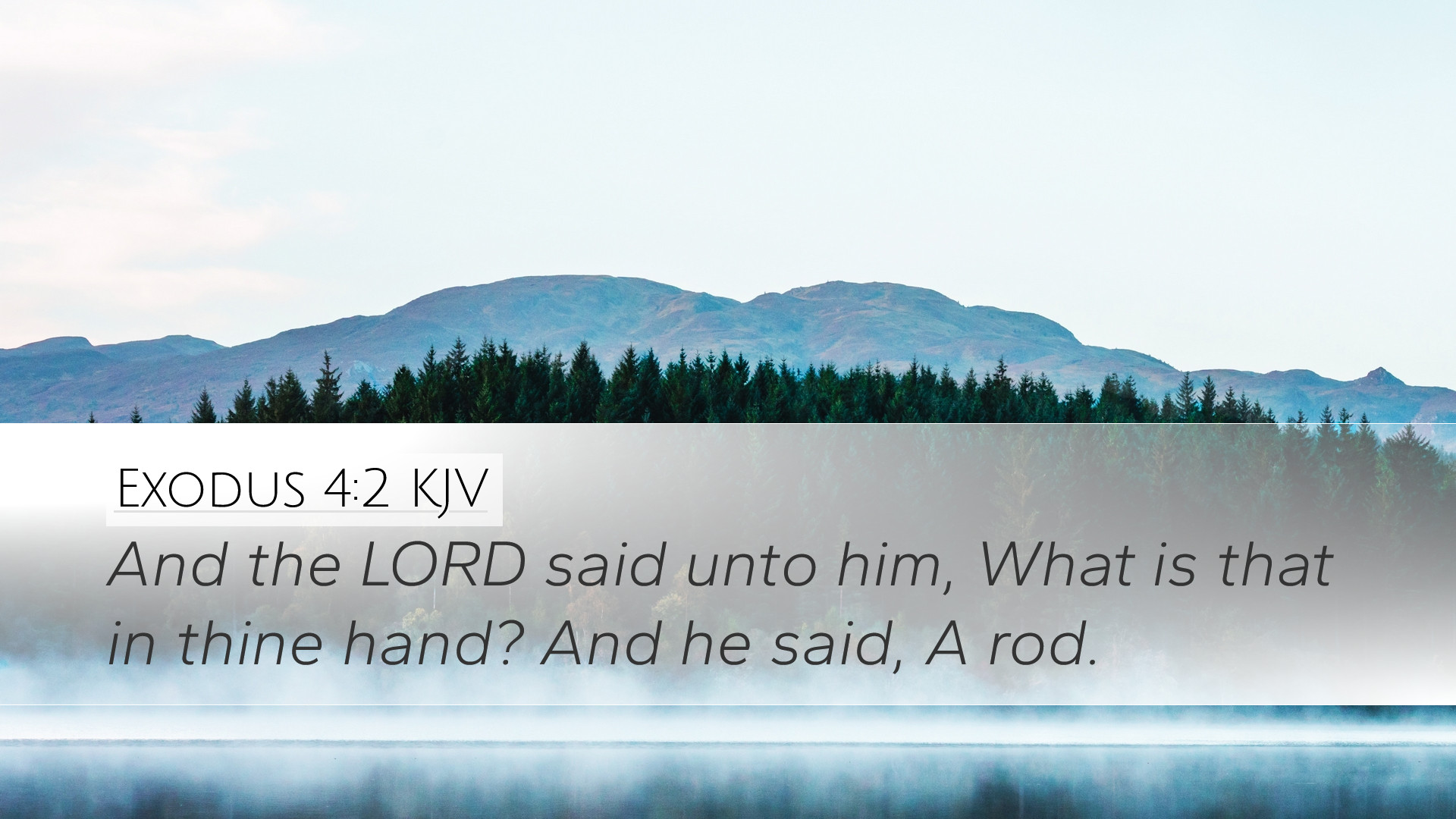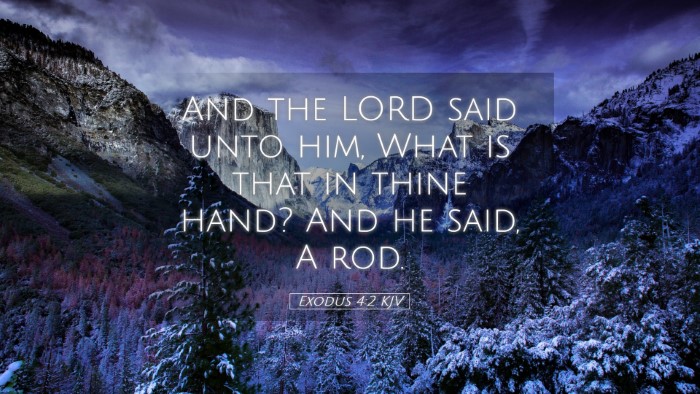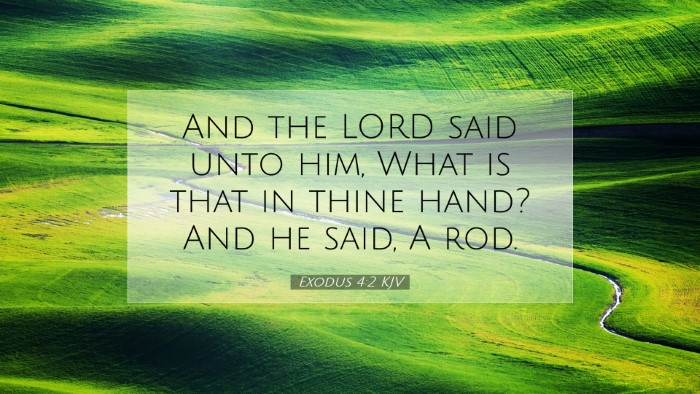Exodus 4:2 Commentary
Verse: "And the Lord said unto him, What is that in thine hand? And he said, A rod."
Introduction
This verse occurs during the encounter between God and Moses at the burning bush, marking a pivotal moment in the life of Moses as he is called to lead the Israelites out of Egypt. Understanding this verse requires reflection on the significance of the rod, the symbolism of divine inquiry, and the implications for Moses’ mission.
Contextual Background
Moses had been in Midian for forty years, tending to sheep, when God called him to deliver a message to Pharaoh. This call was marked by hesitation and doubt on Moses’ part. In this context, the question God poses serves not just as a prompt but as a deeper insistence on the readiness and tools at Moses' disposal.
Commentary Insights
Divine Inquiry and Response
Matthew Henry notes that God’s question, “What is that in thine hand?” serves to illustrate that God often prompts humans to identify their capabilities and resources. It signifies an invitation to recognize that even the simple and ordinary can be used for extraordinary purposes when placed in God’s hands.
The Significance of the Rod
Albert Barnes highlights that the rod represents Moses’ identity as a shepherd and symbolically alludes to the authority he would wield. The rod, often a mere tool for herding sheep, becomes a symbol of God’s power to perform miracles—transforming the ordinary into the extraordinary. This power is exemplified throughout Exodus, where the rod is used to demonstrate God’s might through plagues and parting of the Red Sea.
Human Instrumentality
Adam Clarke emphasizes that God often uses human instruments to execute His divine plans. The rod in Moses' hand, while appearing insignificant, symbolizes how God can empower anyone willing to respond to His call. Clarke argues that the call to Moses is universal; every believer can reflect on what 'rod' God has placed in their hands as potential tools for His ministry.
Theological Implications
- God’s Empowerment: The verse illustrates God’s habit of taking what is available to us and empowering it for His use. It teaches that God equips those He calls.
- Identity and Calling: Moses’ response to God’s question leads to a deeper understanding of his own identity and purpose. It suggests that one's calling is often intertwined with one’s everyday life and experiences.
- The Ordinary and the Extraordinary: The transformation of the rod into a miraculous tool reflects a broader theological theme: God uses ordinary people and objects to fulfill His extraordinary plans.
Practical Applications
For pastors, students, and theologians, the verse offers several practical lessons:
- Self-Reflection: Regularly reflect upon what you have in your ‘hand’—talents, resources, and experiences that God can use.
- Empower Others: Recognize the potential in others and encourage them to see the significance of their capabilities in God’s service.
- Faithfulness in the Ordinary: Foster faithfulness in everyday tasks, knowing that the mundane acts can be the foundation of divine intervention.
Conclusion
Exodus 4:2 encapsulates a powerful moment of divine call and human response. The dialogue between God and Moses challenges readers to contemplate the objects and abilities they possess and how these may be used in serving God's purpose. Reflecting on the insights from the historical public domain commentaries enhances our understanding of divine providence and human cooperation in the unfolding of God’s plan.


